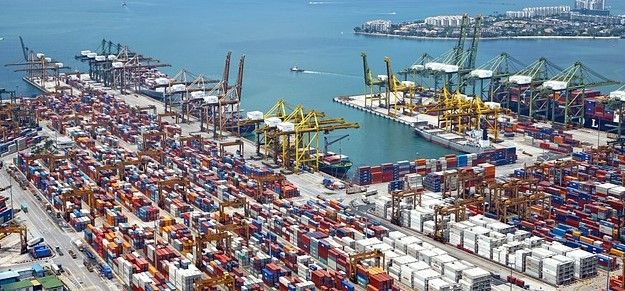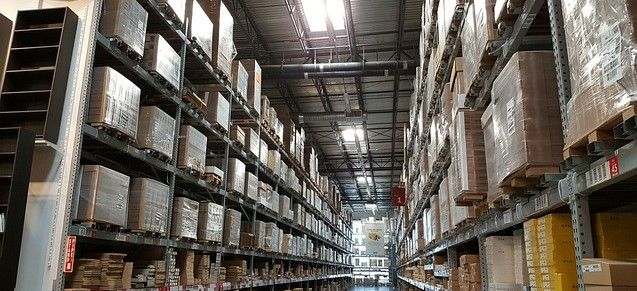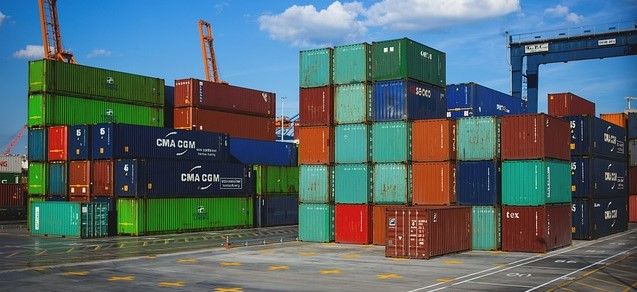Recently, environmentalists sadly announced that whatever course of action humankind takes over emissions reductions, by the 2030s the Arctic will be ice free each summer. Under this burden, the 2025 deadline for the EU’s Green Deal for a carbon neutral economy cannot come too soon.
In total, there are almost 60 pieces of legislation, including the Ecodesign for Sustainable Products Regulation and the Corporate Sustainability Due Diligence Directive, that hope to guide, persuade, and force through the changes necessary to make the European economy the most environmentally friendly on the planet.

The next step on this legal journey is the Corporate Sustainability Reporting Directive (CSDR) – which looks to have as large an impact on business as the recent General Data Protection Regulation laws. In the same way as GDPR, many companies seem to be sleepwalking towards a bureaucratic nightmare coming into effect in 2025, which means gathering the required data from suppliers in 2024.
What is CSDR?
CSDR is legislation forcing companies to declare their products’ impact on the environment, human rights, social standards, and work ethics. It aims to achieve this by making businesses report on how, where, and with what a product was made, with a goal to end greenwashing.
“Today, information on a company’s impact on the environment, human rights and work ethics is patchy, unreliable and easily abused,” explains MEP Pascal Durand who helped lead the legislation’s construction. “Some companies do not report. Others report on what they want. Investors, consumers, and shareholders are at loss. From now on, having a clean human rights record will be just as important as having a clean balance sheet.”
Significantly, the law will only apply to large businesses. These have been defined as a company which on its balance sheet date meets two of the following three criteria:
· a net turnover in excess of €40 million
· more than 250 employees on average during the financial year
· a balance sheet total in excess of €20 million
As Adrian Leighton, an import legislation analyst, notes, “… [the legislation] will affect a lot of importers currently buying products from places like China, branding them, and then importing and selling them, as they will need to provide a lot more information about their products and supply chain’s sustainability.”

One main goal of the new restrictions is to change the perception that it's not difficult to import and sell non-compliant products in the EU because the Commission doesn't prioritize them. For example, in 2019, EU law put the responsibility for compliance of the products they sell on intermediaries. The bulk of this legislation hit online retailers such as Amazon, who were forced to remove vendors from their networks because their products weren't compliant.
Supply Chain Data at the Touch of a Button
Moving forward, the Ecodesign legislation going into effect in 2025, will require importers to affix a product passport to goods (most likely in the form of a QR code) that consumers, distributors, and market surveillance authorities can access.
In order to immediately flag problematic shipments for further inspection, customs authorities will also have access to a uniform EU-wide IT system that gives them quick and easy access to importer and product information.
The passport must include data on:
· Substances included – if non-compliant with REACH etc. it can’t be recycled easily.
· Technical folder (with password access for market surveillance authorities)
· Product durability (listing its ability to be repaired, maintained, and disassembled for recycling)
· Location and method of manufacture (how environmentally friendly were production methods or transport to market, was forced labour involved?)
· A user manual
· Repair instructions
· A Declaration of Conformity
Much as in the formation of REACH, no one is quite certain how easy it will be to glean all the necessary data from across the supply chain, especially for such international, process driven products such as industrial chemicals.

However, three clear approaches to due diligence and EU compliance over supply chains are:
1. A chain of certification – Each actor in the supply chain requires necessary documentation as a sustainable supplier. This system already works well for the sourcing of timber, where FSC certification is held by each supplier, proving that wood has been sourced from a sustainable and well-managed forest.
2. IoT trackers – Applying Internet of Things trackers to containers can assist in imparting information about where any given product has come from. If fixed to raw material containers and passed on to more finished goods, tracking information can be combined, including data on origin, processing addresses, humidity, temperature, etc.
3. Supply chain maps – During the Covid pandemic and its ensuing supply chain crisis, some importers employed software that could trace the source of products in a single ‘map’. Each supplier was asked to complete a form giving product details, allowing for a full map to be created.
It is a useful system, but one that too easily failed beyond the first contact of supplier. Even then, persuading data sharing is often met with reluctance.
CSDR Challenges
The biggest challenge for importers will be convincing overseas suppliers of the urgency and accuracy required. Some exporters will wish to maintain secrecy over information, such as their own suppliers, seeing it as a business secret. Others may disregard the obligation to provide data, as previous legislation focused the responsibility of compliance on the importer, not the supplier. Furthermore, the issue of intermediaries may also be problematic, as the origin of goods purchased may become blurred in a long line of traders.
But this, of course, is exactly the mysterious sourcing of raw materials that the legislation is hoping to extinguish.
The EU sees itself as a global leader for sustainable practice. Envisaging that the laws it lays down will act as a blueprint for reporting standards at a global level. Certainly, Canada, Australia, and California are keenly watching how the EU progresses with sustainability legislation, with possible plans to copy and paste the rules into their own legal systems, much as many countries have done with REACH chemical standards.
In the same way, the question of cost for European industries and whether or not China, America, the Middle East, or other regions will wish to take part, is also not yet known. But whatever happens, the next couple of years look to be more complicated for importing goods into the EU.
Photo credit: Pexels from Pixabay, Icondigital, Jason Goh, & Michael Gaida